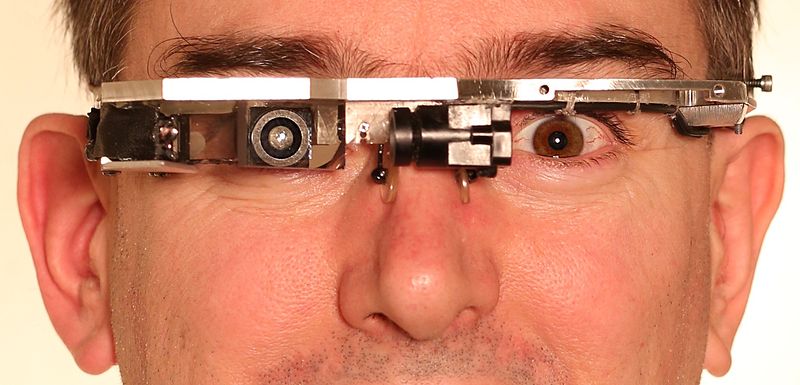Privacy challenges of wearable computing
May 27, 2013

EyeTap (credit: Steve Mann)
“I’ve experienced both sides” of the privacy debate on Google Glass, Nick Bilton writes in The New York Times.
But other gadgets have plenty of privacy-invading potential too, he says. Memoto, a tiny, automatic camera that looks like a pin you can wear on a shirt, can snap two photos a minute and later upload it to an online service.
Apple is also working on wearable computing products, filing numerous patents for a “heads-up display” and camera. And several other start-ups in Silicon Valley are building products that are designed to capture photos of people’s lives, says Bilton.
“Most people are not talking about privacy here, they are talking about social appropriateness,” said Thad Starner, who is the director of the Contextual Computing Group at the Georgia Institute of Technology and a technical adviser to the Google Glass team. He said he believed most people are respectful and would not use their wearable computers inappropriately.
What’s deemed appropriate may vary. As KurzweilAI reported, last July, Steve Mann, a professor of electrical and computer engineering at the University of Toronto and renowned as the world’s first cyborg, was physically assaulted in a McDonald’s in Paris for wearing his EyeTap eyeglass, with resulting damage to his eyeglass, which is surgically attached to his skull. — Editor
